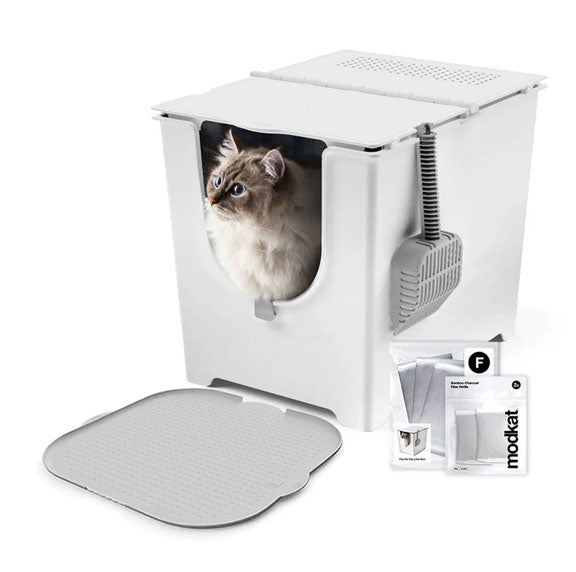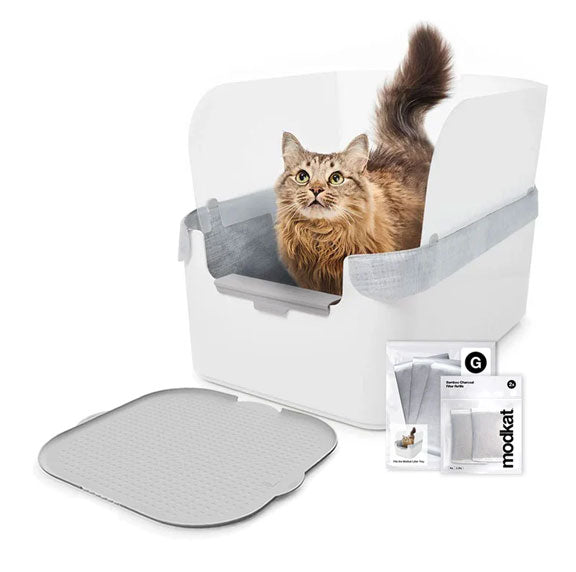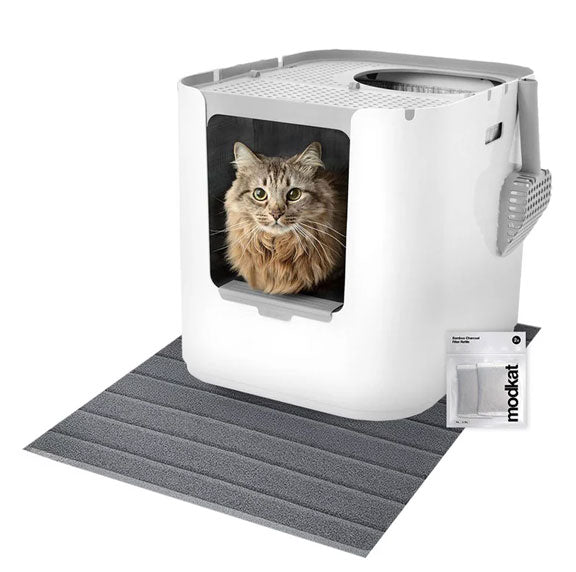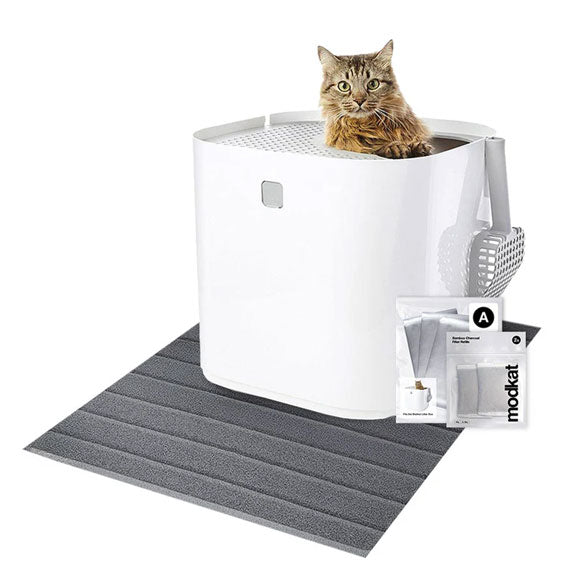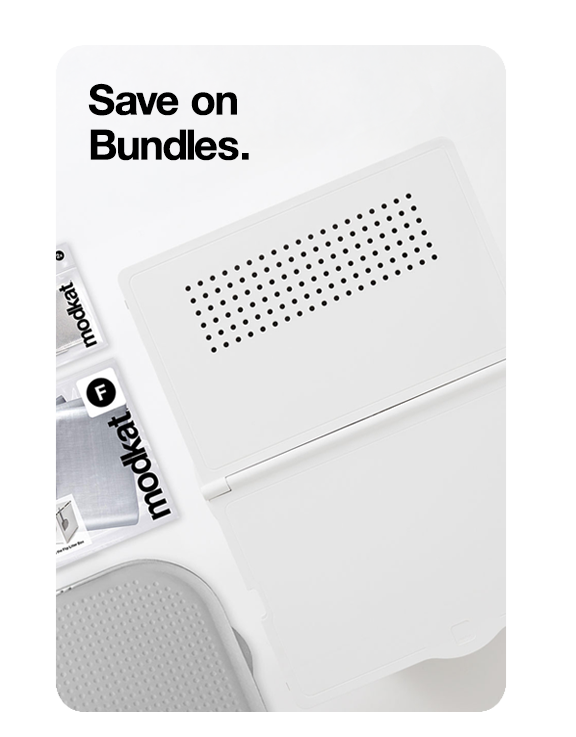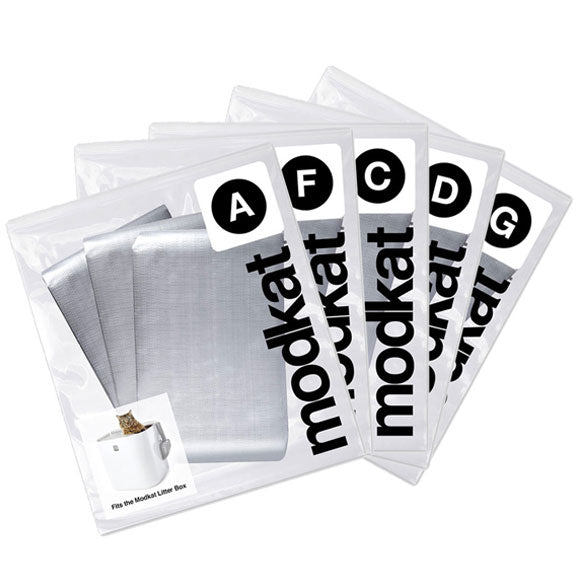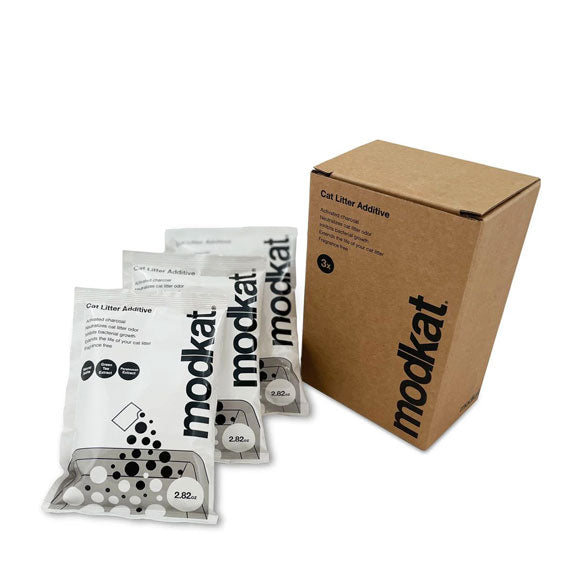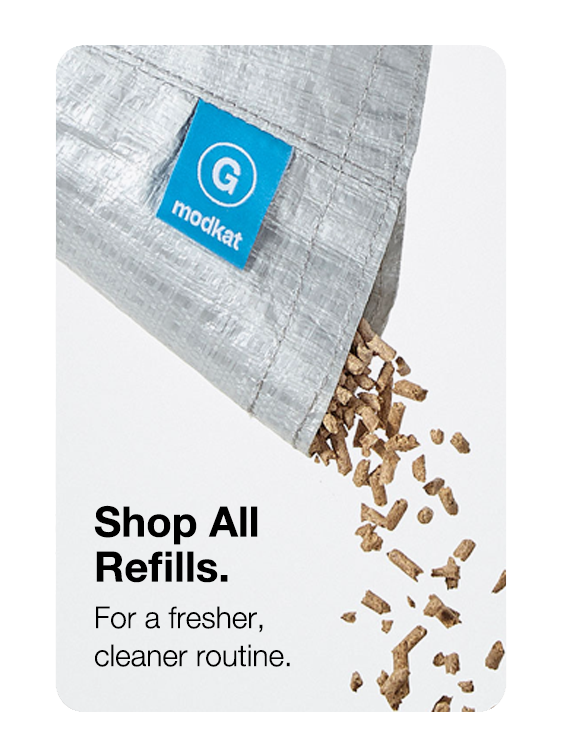20% off sitewide. Discount automatically applied.
20% off sitewide. Discount automatically applied.
Litter Boxes
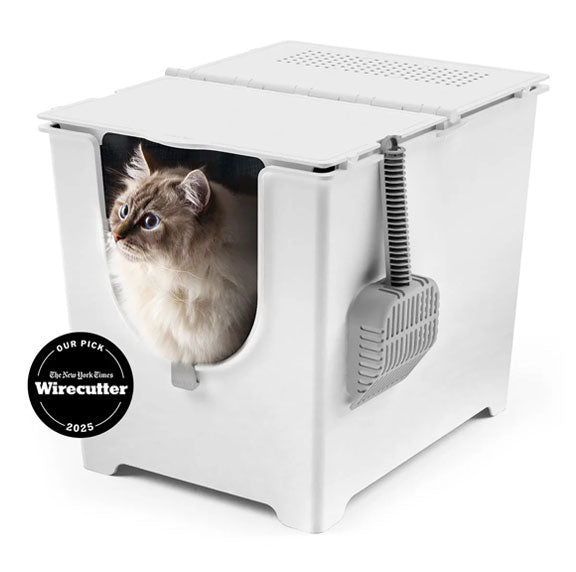
Modkat Flip
Front-Entry Litter Box
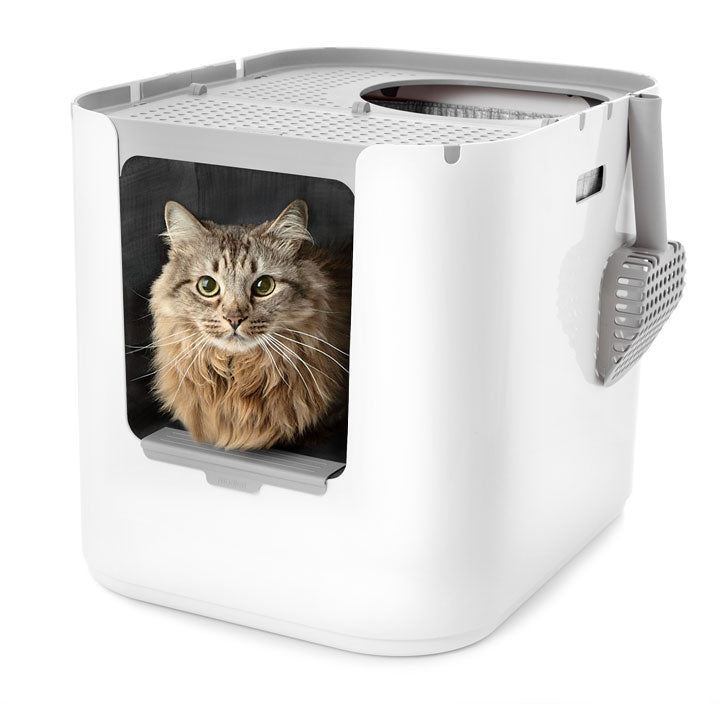
Modkat XL
Front/Top-Entry Litter Box
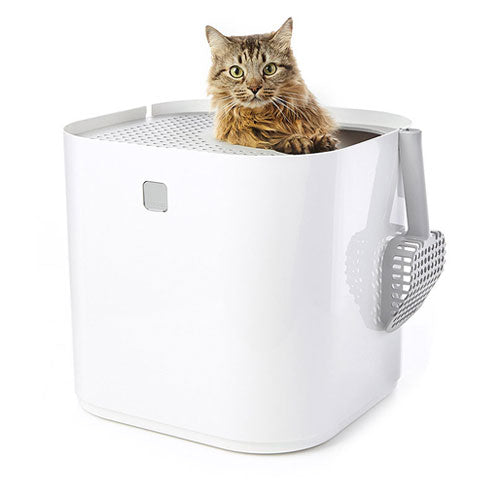
Modkat
Top-Entry Litter Box
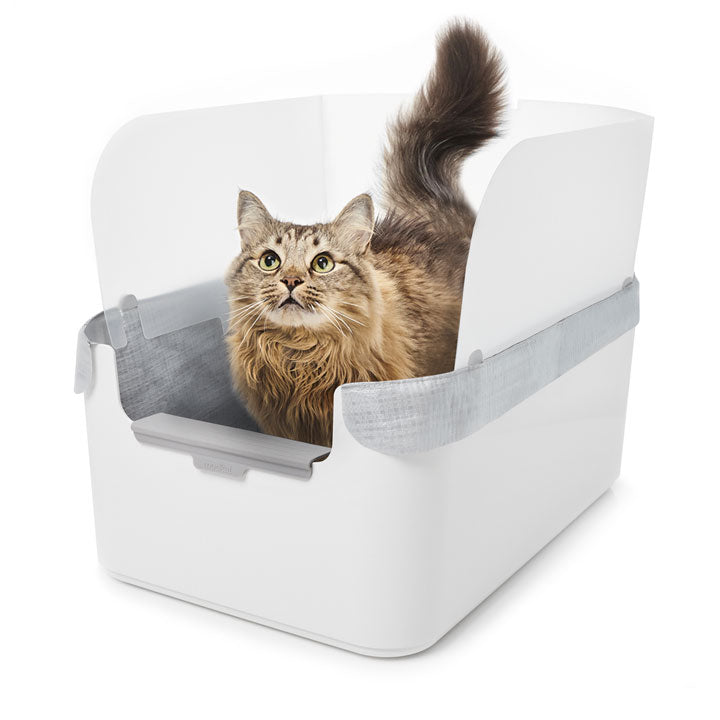
Modkat Tray
Open Litter Box
Bundles
Essentials
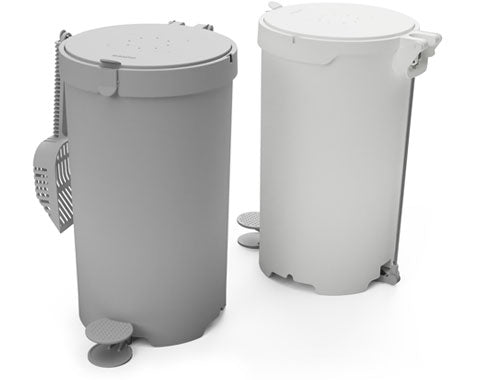
Litter Keeper
Two colors
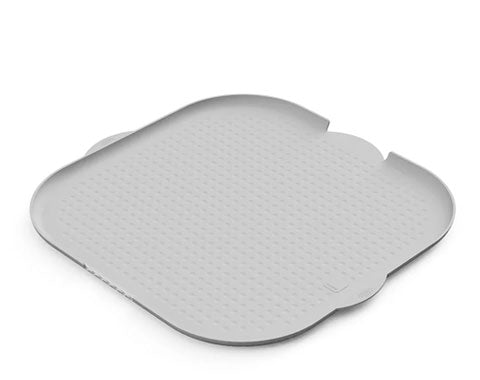
Litter Mats
Multiple styles, colors & sizes
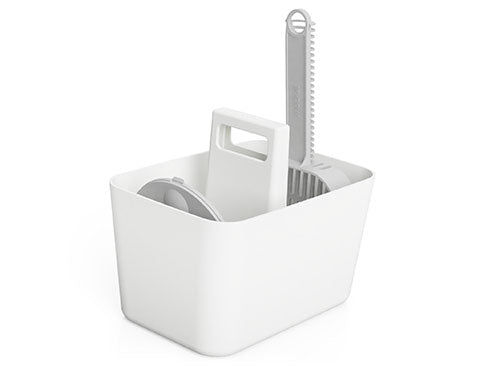
Tidy-Up Kit
Scoop holder & dustpan

Lounge + Play
Scratchers & toys
Refills
Add description, images, menus and links to your mega menu
A column with no settings can be used as a spacer
Link to your collections, sales and even external links
Add up to five columns
Add description, images, menus and links to your mega menu
A column with no settings can be used as a spacer
Link to your collections, sales and even external links
Add up to five columns
Is my cat obese?

Photo: Simona on Imgur
"If you're an American, you're overweight," declared humorist Dave Barry in 1998.
If that was true then, how much more so 20 years later? Today, 39.6% of American adults are obese, and the national weight problem is affecting our pets, too.
Pet obesity occurs when an animal's actual weight surpasses its ideal weight by 20% or more.
According to the Association for Pet Obesity Prevention, 56% of dogs and 60% of cats are clinically overweight, which means 50.2 million dogs and 56.5 million cats are packing extra pounds.
How can I know if my cat is obese?
A normal cat weight range can vary from 5-25 pounds with 10 being the average. It all depends on breed, bone structure, height, and more factors.
Many cat companions don't realize their furry friends are obese because we're desensitized to seeing heavy pets and people.
There's an easy way to check your pet's condition, though. Place your hand on your cat's ribs. If there is more padding there than on the back of your hand, your cat may be struggling with a weight control problem. In that case, it's time to consult a cat nutritionist or a veterinarian who specializes in cats. Avoid launching the animal on a weight-loss diet without having knowledgeable and conscientious oversight.
Five reasons our pets are overweight.
Unlike most people, pets can't open the refrigerator door and pull out a snack. They eat what their human companions give them, and they exercise on our timetable not their own. So why are our cats overweight?
- The relationship between people and pets. We may eat healthy and get pumped at the gym regularly, but we often manage our own diets and exercise programs differently from the way we treat our pets. Puppy dog eyes and sweet kitty meows earn treats for our pets to gobble down in excess.
- High calorie foods. It's important to talk to a cat nutritionist or feline veterinarian about your cat's diet. Many commercial cat foods are packed with calories while offering little nutrition.
- Inadequate exercise. If inactivity is an issue for dogs who can run around the yard and take walks on a leash, think about how critical it is for cats. Our kitties need plenty of active toys and one-on-one time with their humans to get in all that good cardio.
- The human-animal bond. The dog and cat used to be just the dog and cat, not short, furry children with four legs. Today, however, that relationship is much stronger. Some people who suffer from loneliness may begin to treat their animals as surrogate companions, feeding them far too much human food in the process.
- Feline diseases. Some cats are overweight due to having a disease such as hypothyroidism, Cushing's Disease, or bloat. Parasites can also cause weight gain. If you suspect ill health is behind your pet's obesity issues, contact your vet at once.
The high cost of cat obesity.
Overweight cats cost their families in two ways - feline health and family finances.
Obesity in domestic pets can lead to an abbreviated lifespan. It is a factor in diseases like arthritis, bladder infections, and some cancers. Cats, in particular, are susceptible to diabetes, high blood pressure, and liver disease caused by weight gain. Many overweight household pets even suffer from a type of clinical depression. In fact, up to 20% of cat and dog health issues may be obesity related.
These conditions cost pet parents and insurance companies a staggering amount of money in veterinary bills each year.
Pet obesity prevention.
The Association for Pet Obesity Prevention offers many valuable resources on preventing and reversing obesity in pets. The organization stands behind many of the activities happening on Pet Obesity Awareness Day (October 10, 2018).
It's also important to talk to your vet or nutritionist, avoid giving your pets excessive treats, and make sure everyone in the household - furry members, too - gets plenty of life-enriching exercises. We want our cats and their people to be healthy and happy, and we know a sensible diet and exercise program is one great way to get there. 🐈
“It looks nicer than any other hooded or open option we considered.”

Categories
Meow from Brooklyn.
Sign up and get early access to product drops, exclusive offers, and the occasional cat meme.
Similar products related to this blog:
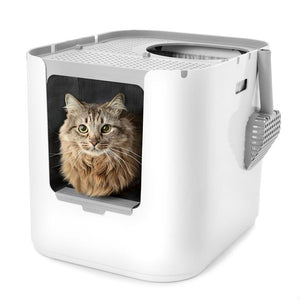
"It looks nicer than any other hooded or open option we considered."

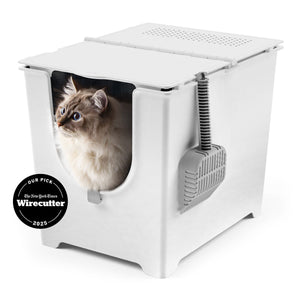
"This litter box keeps everything in, nothing gets out the sides."
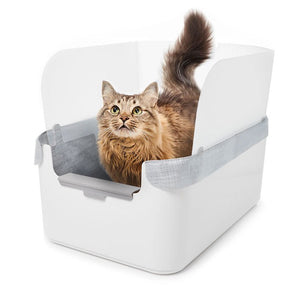
"My beautiful ragdoll cat and I both love the new Modkat Litter tray!"

